Beans are a staple food in many cultures and are a rich source of protein, fiber, and other nutrients. However, there needs to be more clarity about whether beans are acidic, especially for those on a low-acid diet.
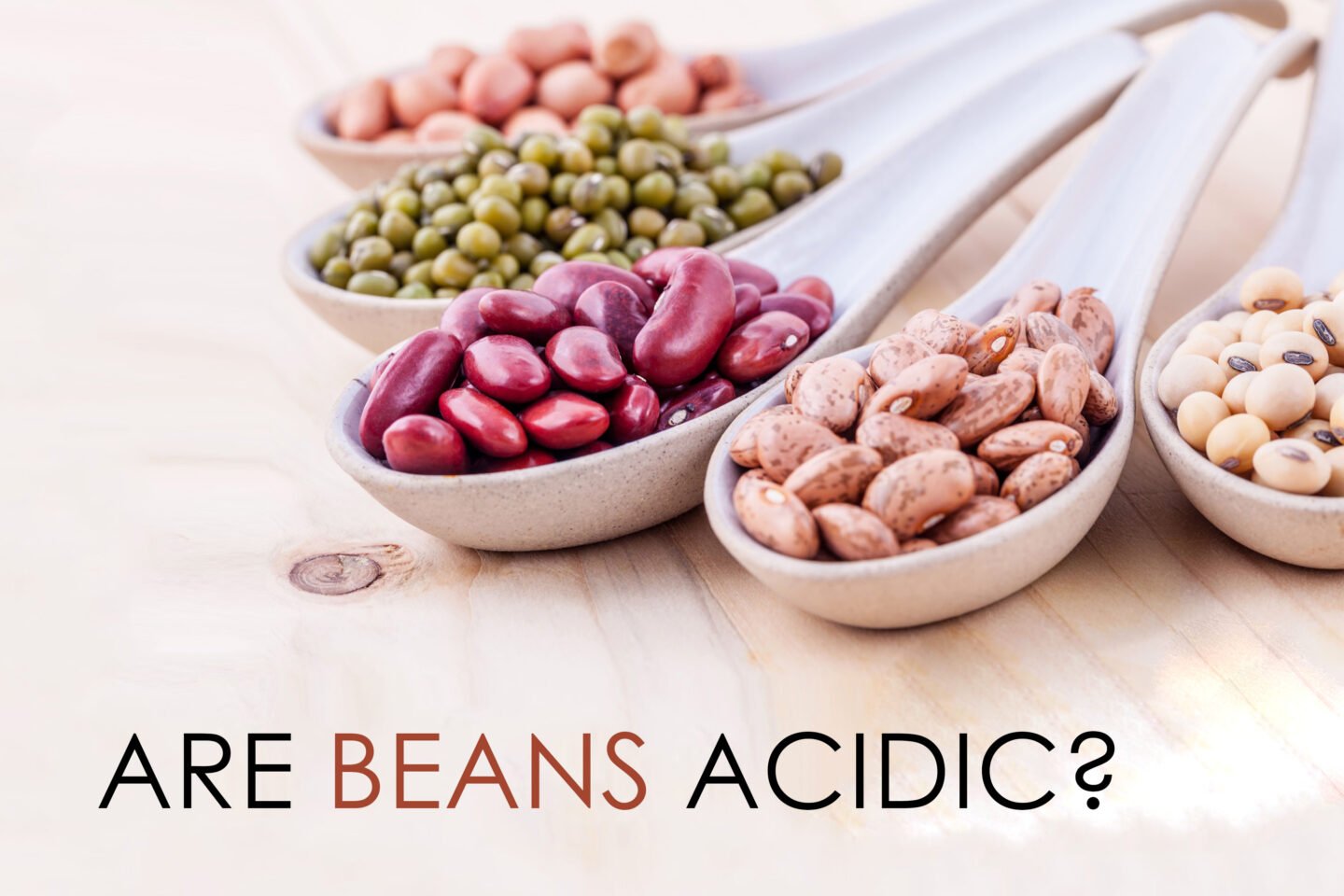
The quick answer is yes; beans have a pH of 5.7 to 6.2, making them acidic. Moreover, beans are acid-forming and can add to one’s acid load. People with GERD and acid reflux should reduce their bean consumption to prevent symptoms from aggravating.
Read on to learn everything about this topic.
Table of Contents
Are Beans Acidic?
The pH level of beans can vary depending on the type of bean and how you prepare them. In general, beans are slightly acidic, with a pH between 5.9 and 6.2.
The acidity of beans is due to their natural composition, which includes amino and organic acids such as phytic acid.
Some beans are more acidic than others. For example, kidney beans have a pH level of around 5.4, while navy beans have a pH of about 6.0.
The cooking process can also affect the pH level of beans. For instance, soaking beans before cooking them can help reduce their acidity. Soaking helps remove some of the organic acids that contribute to their acidity.
Additionally, adding baking soda to the soaking water can help raise the pH level of the beans and make them less acidic.
RELATED: Are Soybeans Acidic?
Different Types of Beans and Their Acidity
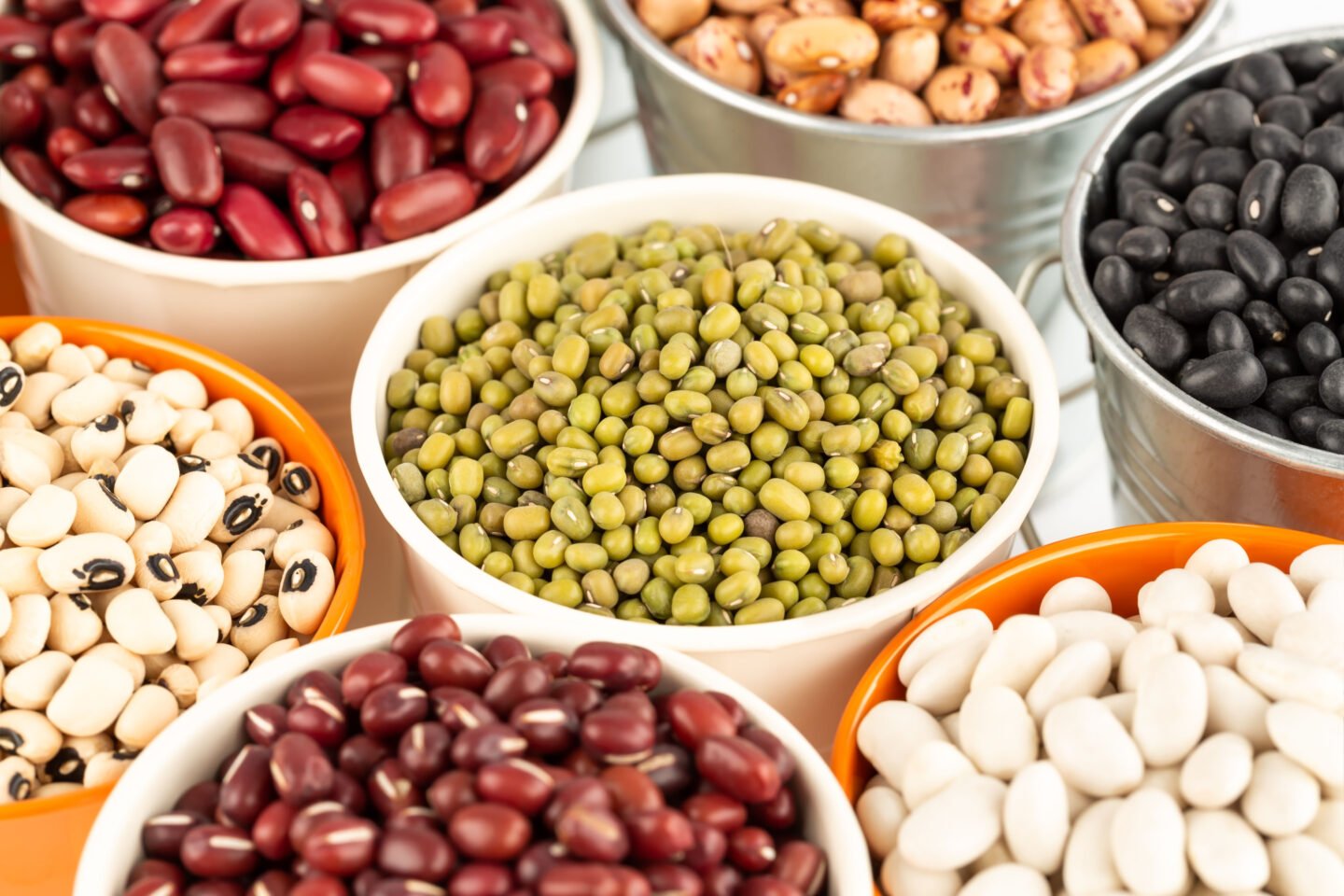
There are many different types of beans, and their pH levels can vary depending on the type of bean. Some beans may have a near-neutral pH, but since they are acid-forming, people with GERD should still limit their intake.
Here are some examples of commonly consumed beans and their approximate pH levels:
Kidney Beans
Kidney beans have a pH level of 5.4 to 6.0, making them more acidic than other types of beans. They are rich in protein, fiber, and vitamins. Properly cooking kidney beans is a must to reduce their acidity and ensure they are safe to eat.
Navy Beans
Navy beans have a pH of around 6.0, making them slightly less acidic than kidney beans. They are an excellent addition to soups and stews and a good fiber and protein source.
Black Beans
Black beans have a pH level of 5.78 to 6.02, making them slightly acidic. They are a popular ingredient in Mexican and Latin American cuisine and are rich in protein, fiber, and other nutrients.
RELATED: Black Beans: 20 Things You Should Know (Must Read)
Lima Beans
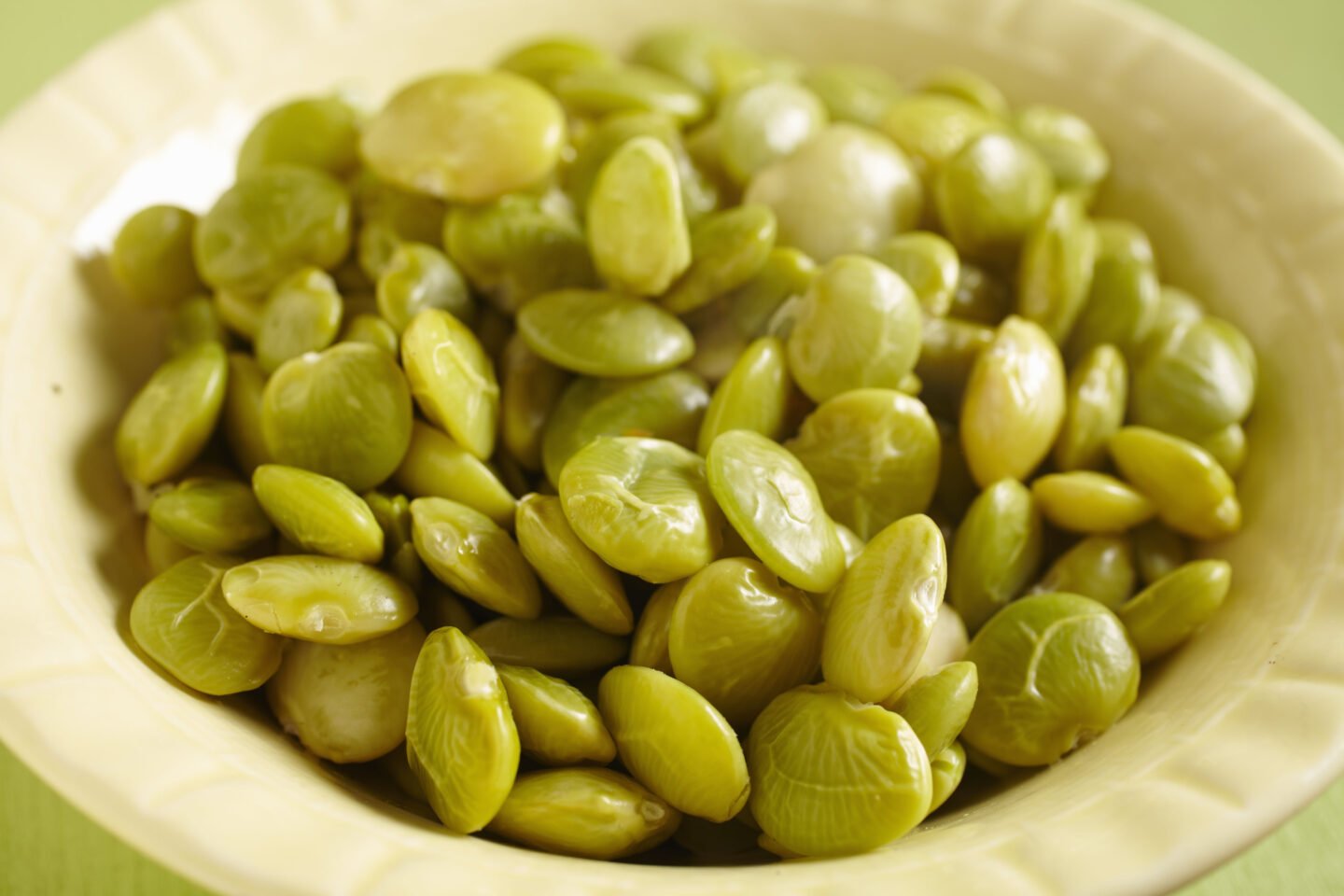
Lima beans have a pH level of 6.5, making them almost neutral. They are an excellent protein, fiber, and vitamin source and a common bean choice in stews and casseroles.
Garbanzo Beans (Chickpeas)
Garbanzo beans have a pH level of around 6.5, making them slightly acidic. They are a popular ingredient in Mediterranean and Middle Eastern cuisine.
Soybeans
Soybeans have a pH level of around 6.5, making them slightly alkaline. Soybeans are a common ingredient in various products, including tofu, soy milk, and tempeh.
RELATED: Is Pomegranate Acidic?
Are Beans Bad for Acid Reflux?
Beans are acid-forming, meaning they can contribute to an acidic environment in the body. Once digested, beans release organic acids and amino acids that can lower the pH level of the digestive tract, making it more acidic.
This acidity can irritate the lining of the esophagus and cause symptoms of acid reflux, such as heartburn, regurgitation, and chest pain.
It is worth noting that not all people with acid reflux will have problems with beans. Some people may be able to tolerate small amounts of beans or specific types of beans, while others may need to avoid them altogether.
If you have acid reflux and are concerned about consuming beans, you must speak with your healthcare provider or a registered dietitian.
Are Beans Healthy?
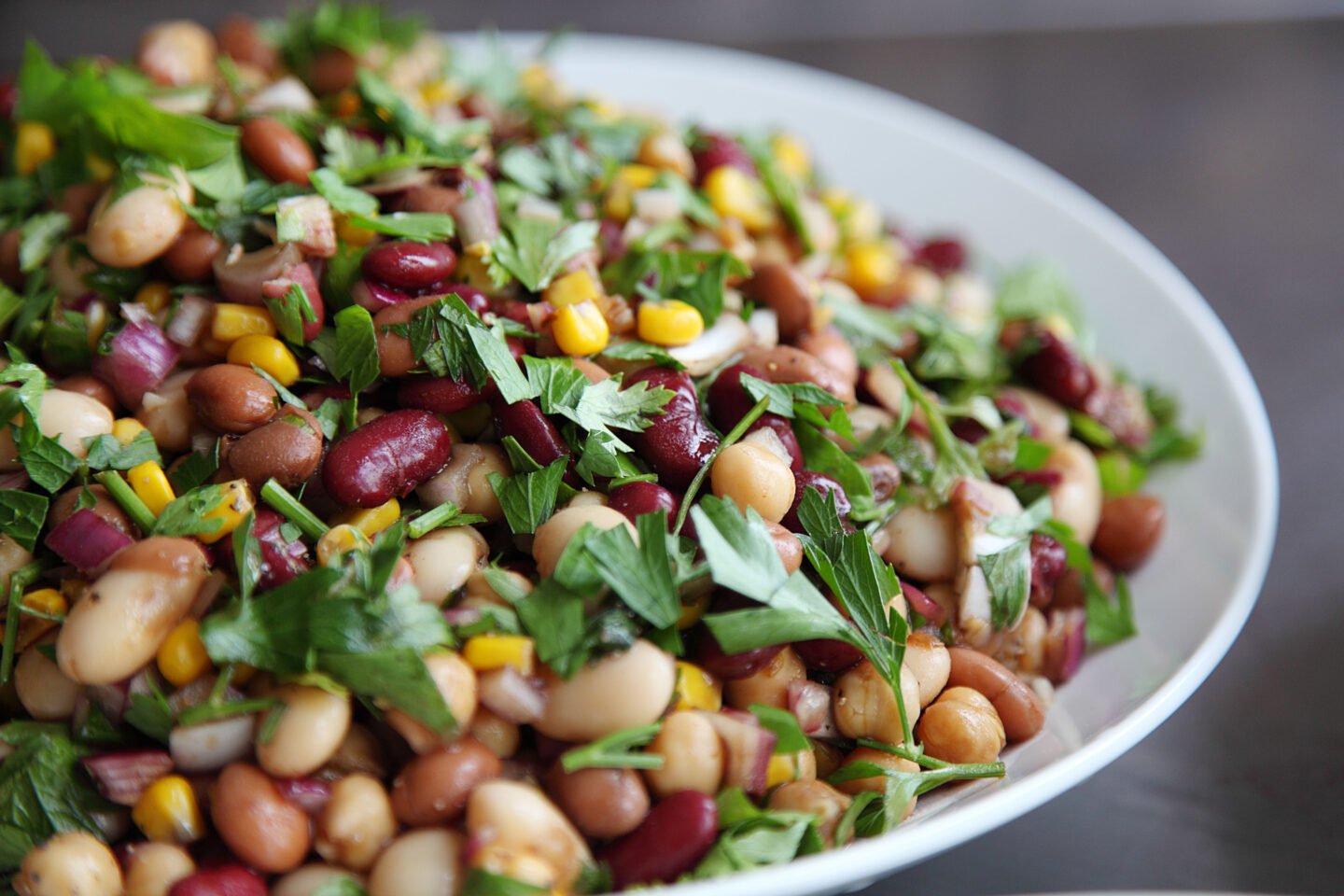
Beans are a nutritious food that can offer a variety of health benefits. Although most people with acid reflux need to reduce their bean intake, beans are an excellent addition to one’s diet as long as they don’t trigger symptoms.
Here are the top health benefits of beans:
Improves Digestion
Beans are an excellent source of dietary fiber; a cup contains 30 grams, which is 120% of the daily required intake.
Fiber helps regulate digestion and promote feelings of fullness. Fiber can also help lower cholesterol levels and reduce the risk of developing chronic diseases such as diabetes, heart disease, and cancer.
Good digestive health helps prevent the occurrence of heartburn, but this may not be the case with beans as they tend to create more acid.
RELATED: Are Chickpeas Acidic or Alkaline?
Builds Muscles
Beans are an excellent source of plant-based protein, which can be especially beneficial for those following a vegetarian or vegan diet.
The body needs protein to build and repair tissues, maintain a healthy immune system, and regulate hormones.
Low in Fat
Beans are low in fat, particularly saturated fat, making them an excellent choice for those who want to reduce the risk of heart disease and other chronic conditions. The high fiber content also helps with maintaining heart health.
High in Antioxidants
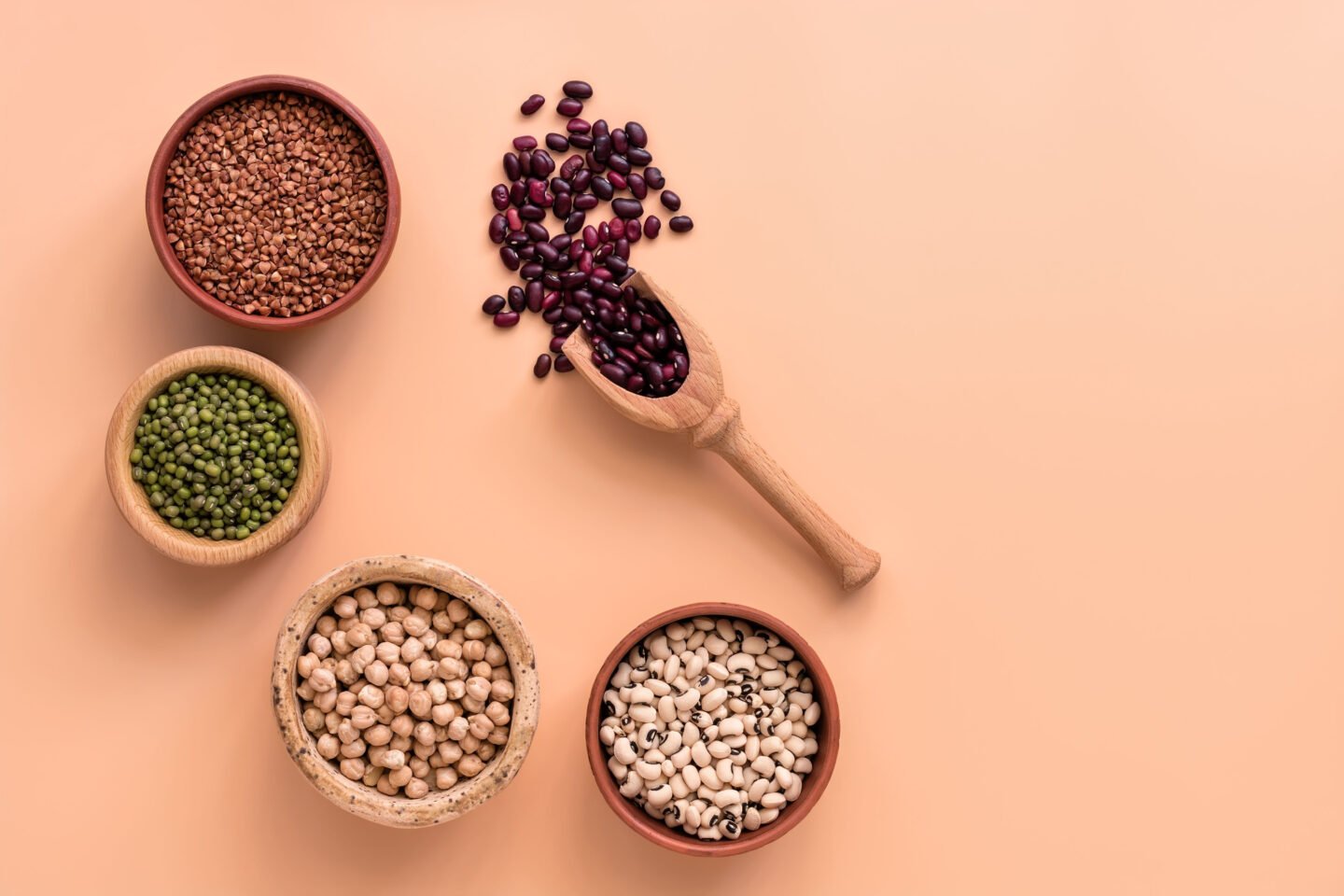
Beans contain antioxidants, which can help protect cells from damage caused by free radicals. Antioxidants help reduce the risk of chronic diseases.
Aids Weight Loss
Due to their high protein and fiber content, beans can help promote feelings of fullness, reduce overall calorie intake, and eventually lead to weight loss.
Don't know what to drink? Check out these articles: 20 Most and Least Acidic Juices and 20+ Alcoholic Drinks Ranked by Acidity Level
